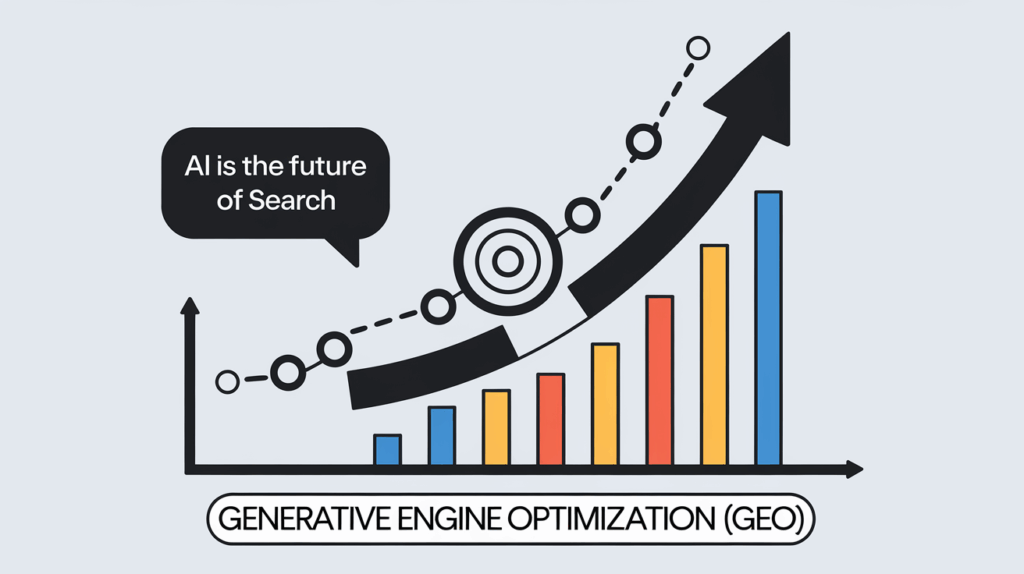Introduction
The landscape of search engine optimization (SEO) is rapidly evolving with the emergence of AI-powered search engines like Google Search Generative Experience (SGE), Microsoft Bing with ChatGPT integration, and You.com. Traditional ranking signals still matter, but AI introduces a whole new set of criteria based on relevance, context, semantic relationships, and real-time intent understanding. In this comprehensive guide, we explore how to optimize your website to rank effectively in AI-enhanced search environments.
What Are AI Search Engines?
AI search engines leverage natural language processing (NLP), machine learning, and large language models (LLMs) to understand queries more like a human would. Instead of relying solely on keyword matching, these engines interpret the user’s intent, consider context, and generate detailed, human-like answers or summaries directly on the search results page.
Examples of AI Search Engines:
- Google SGE (Search Generative Experience)
- Bing + ChatGPT
- You.com
- Perplexity.ai
- Brave Search
These platforms synthesize data from multiple sources, often presenting an “answer box” or “AI overview” that doesn’t require the user to click through to a website—changing the game for visibility and click-through rates.
Key Optimization Strategies for AI Search Engines
1. Focus on Semantic SEO
AI engines are context-aware. Optimize by covering the topic in-depth using semantically related keywords and questions.
Action Points:
- Use tools like LSIGraph or SurferSEO to identify related terms.
- Structure content using topic clusters and internal links.
- Write FAQs and sub-sections to answer user questions comprehensively.
2. Structured Data and Schema Markup
Schema helps AI better understand your content. Add structured data for:
- Articles (Article, BlogPosting)
- FAQs
- Product Pages
- Reviews
- LocalBusiness
Use Google’s Rich Results Testing Tool to validate implementation.
3. E-E-A-T (Experience, Expertise, Authoritativeness, Trust)
Google’s helpful content system favors content backed by real expertise. Make sure:
- Content is authored by or attributed to real experts.
- Author bios are linked and transparent.
- External references and citations are provided.
4. Generative Engine Optimization (GEO)
This emerging term refers to optimizing content to be featured or cited by AI responses.
Tips:
- Create direct, concise answer-style paragraphs.
- Use sentence structures that AI can lift easily into summaries.
- Write with a factual and journalistic tone.
5. Use of AI Tools to Understand AI Behavior
Tools like:
- AlsoAsked.com
- AnswerThePublic
- Google Search Console’s performance queries
Help you understand how people phrase questions that AI may prioritize.
6. Content Format and Accessibility
AI favors well-structured content. Use:
- Short paragraphs
- Bullet points
- Clear headings (H2, H3)
- Alt text for images
7. Authoritative Backlinks and Mentions
Even AI systems reference authoritative sources. Secure:
- High DA backlinks
- Brand mentions in reputable publications
- Citations from niche-relevant websites
8. Page Experience Signals
Fast, mobile-friendly, and secure websites are still vital. Optimize for:
- Core Web Vitals
- Mobile usability
- HTTPS
Emerging Trends in AI Search Ranking
Google’s Search Generative Experience (SGE)
SGE provides a snapshot summary generated via AI. It pulls from:
- Highly authoritative and relevant sources
- Fresh and structured content
- Pages optimized for featured snippets
Bing Chat and ChatGPT
Microsoft’s integration surfaces direct answers from web content. Ranking involves:
- Being cited in AI conversations
- Having clear, well-cited web content
You.com and Perplexity.ai
These newer engines are citation-focused. Ensure:
- Proper outbound linking
- Evidence-based content
External References and Resources
- Google Search Central Blog
- Bing Webmaster Guidelines
- OpenAI ChatGPT Plugins
- Schema.org Structured Data
FAQs: AI Search Engine Optimization
What is Generative Engine Optimization (GEO)?
GEO is the practice of optimizing content to be referenced or cited by AI-generated summaries in search engines.
How is SEO different for AI search engines?
AI SEO focuses more on context, semantics, and structured content than just keywords and backlinks.
Do traditional SEO methods still work?
Yes, but they must evolve. Keyword targeting and link building are still relevant, but must be supplemented with semantic and structural techniques.
How can I get featured in Google’s AI Overviews?
Use concise, authoritative answers in your content. Include structured data and cite credible sources.
Will AI search reduce website traffic?
Potentially, due to zero-click answers. That’s why appearing as a cited source within the AI response is critical.
What tools help with AI SEO?
Use:
- SurferSEO
- MarketMuse
- Semrush
- ChatGPT
- Screaming Frog
Does Google penalize AI-generated content?
No, but it must be original, helpful, and meet EEAT standards. Quality > automation.
What type of content performs best in AI search?
How-tos, guides, comparison posts, FAQs, and deeply authoritative content.
Conclusion
Ranking in AI-powered search engines is no longer about tricking algorithms—it’s about aligning with them. By combining semantic optimization, structured data, clear author signals, and user-focused content, your site can thrive in this new era of search. As AI evolves, staying ahead means not just creating content—but engineering it to be discoverable, trusted, and referenced by AI systems.
For expert help in AI-driven SEO strategies, visit Dexora Digital or book a free consultation.

SEO & Web StrategyA results-focused strategist, Taqweem leads the Dexora team with hands-on expertise in full-stack web development and search engine optimization. With over 4 years of experience transforming websites into high-performing digital assets, he ensures every project is driven by clean code, strong UX, and bulletproof SEO.


